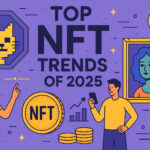Overview of Vine
Vine, the short-form video hosting service that was once highly popular, may be making a comeback in the form of a blockchain-based social media platform. Dom Hofmann, the creator of Vine, announced on Twitter that he is working on a follow-up to the platform. Although few details have been revealed about the project, Hofmann mentioned that it will be distinct from the original version and will utilize blockchain technology. This news has sparked speculation about the potential impact on the future of social media and content creation.
Potential implications for the future of social media and content creation
Blockchain technology could potentially offer a number of benefits for social media platforms, including improved security and decentralization of user data. By using a decentralized network for data storage rather than a centralized server, the risk of data breaches and hacks could be significantly reduced.
Additionally, blockchain technology may provide a solution for fairly compensating content creators on social media. Currently, many creators struggle to monetize their work due to the algorithms and policies of traditional social media platforms. By implementing a system that utilizes cryptocurrency or other means, content creators could potentially be directly compensated for their creations.
Details of the project and what it entails
It is not currently clear how the potential Vine blockchain-based social media platform will utilize blockchain technology. Dom Hofmann, the creator of Vine, has not provided many details about the project, and it is still in the development stage. It is possible that the platform could use blockchain in a number of ways, such as for secure storage and decentralized management of user data, or for fairly compensating content creators through the use of cryptocurrency or other means. However, without more information, it is difficult to say for certain how Vine will incorporate blockchain technology.
Potential drawbacks and challenges
However, there are also potential drawbacks and challenges to consider. Implementing blockchain technology on a large scale can be complex and may require significant resources. In addition, the general public still has a limited understanding and adoption of blockchain technology, which could pose challenges in terms of user adoption.
Some of these include:
- Complexity of implementing blockchain technology on a large scale: Developing and implementing a blockchain-based social media platform would likely be a complex and resource-intensive process. There could be technical challenges in building and maintaining the platform, as well as in onboarding users and content creators.
- Limited understanding and adoption of blockchain technology by the general public: Blockchain technology is still not widely understood or adopted by the general public, which could pose challenges in terms of user adoption of the platform. It may be necessary to educate users about how the platform works and the benefits of using blockchain.
- The potential Vine platform may face regulatory challenges depending on its features and functions, such as those related to cryptocurrency or data privacy. In addition, building and maintaining a social media platform can be expensive, and it may be difficult for the platform to generate enough revenue to sustain itself financially.
Conclusion
In conclusion, the announcement of a potential blockchain-based social media platform being developed by the creator of Vine has generated interest in the potential benefits and challenges of using blockchain technology in the social media industry. The use of blockchain could provide improved security and decentralization of user data, as well as fair compensation for content creators. However, there are also challenges to be addressed, such as the complexity of implementing blockchain on a large scale and the limited understanding and adoption of the technology by the general public.










